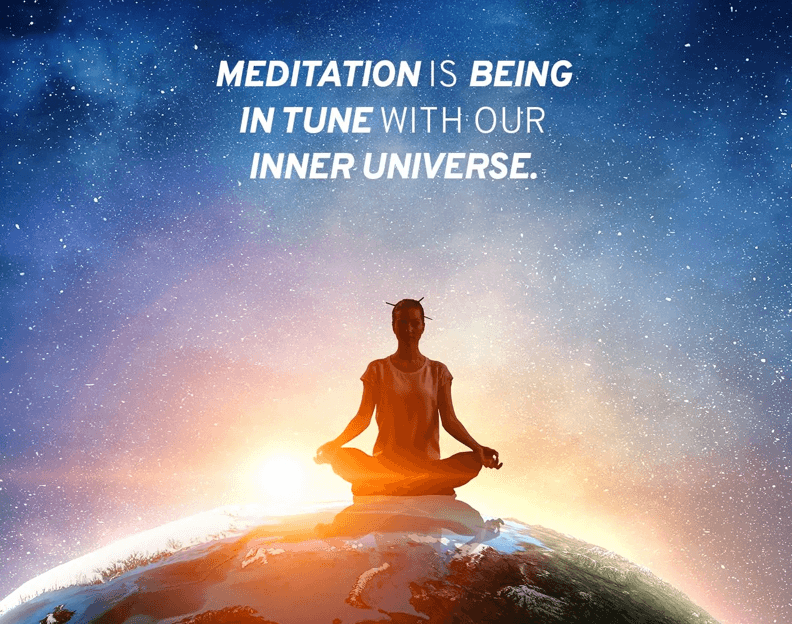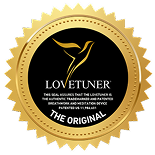
Ways To Heal Your Body Through Guided Meditation | Lovetuner
Meditation is a natural remedy for stress, aiding in relaxation and mental clarity. Techniques like breathing or sound meditation, along with moving meditations like yoga, offer numerous benefits, from reducing stress to improving sleep and mental health. Consistency and patience are essential for harnessing its healing potential...
As we grow older, our obligations and stress levels increase. Not to mention, the worry and anxiety we may experience as we work through our issues. Constantly reliving daily concerns and fears in your thoughts might harm your mental and physical health.
Fortunately, there is a natural way to help you deal with stress, decompress, and reconnect with your mind and body which is what we know as meditation. Meditation appears to be simple, however, remaining silent and still in body and mind requires a lot of discipline. Here is a simple guide that will talk about the benefits of meditation, some popular ways to meditate, and how you can use it for healing.
What Type of Healing is Meditation?
Over time, science has developed various methods for assisting our bodies in releasing their healing potential. We may actively interact with our minds while also healing ourselves through meditation.
Meditation is a holistic therapy that aids in relaxation. It aids in mind tranquility and helps you think more clearly as you heal. It also allows you to focus your attention and rid your mind of any chaotic thoughts that are irritating you and causing stress.
Being consistent with your meditations will display a good outcome on your physical and mental health. Although there is no right or wrong way to meditate, finding the type that works best for you is essential if your goal is to improve your wellbeing.
Benefits of Meditation
Meditation has numerous advantages that can be applied to your daily life and healing. Here are some of the advantages you can get:
Lowers your stress
It is the most well-known advantage of meditation. Meditation reduces stress hormone levels in the body. Meditation can help you achieve a deep sense of serenity, tranquility, and equilibrium. You’ll find that you breathe easier and control your heart rate by focusing your attention and eliminating the confusing thoughts that overwhelm your head.
Better sleep quality
When you're stressed, sleeping is difficult. You are more likely to sleep more sound and have fewer nightmares if you meditate. Meditation relaxes your mind and promotes harmony between your mind and body.
Reduce brain chatter
Brain chatter can be silenced through mindfulness meditation. You become so aware while meditating that you can reduce mental noise. It takes a lot of discipline to filter and control your thoughts to lessen chatter, but it is possible if you regularly engage your mind in stress relief.
Improved immune system
The relaxation response from meditation decreases stress-related inflammation and improves insulin resistance over time. Meditation also increases the production of immune system helper cells, which aid in the battle against illnesses.
Relief from anxiety, depression, and pain
Meditation can help alleviate the psychological symptoms of sadness, anxiety, and stress-related physical pain. According to Harvard Health Publishing, a research reviewed in 2014 found meditation to be “helpful for relieving anxiety, pain, and depression.“ (1)
Many views exist regarding how meditation might benefit your physical and mental health. One theory is that it lowers sympathetic nervous system activity. This causes muscle relaxation, a slower heart rate, lower blood pressure, and slower breathing. Although many doctors recommend meditation to help with ailments, particularly those exacerbated by stress, it is unknown how meditation provides so many health advantages.
Some study suggests that meditation may aid in the management of symptoms associated with diseases such as:
- Asthma
- Cancer
- Pain that lasts a long time
- Depression
- Coronary artery disease
- Blood pressure
- Irritable bowel syndrome
- Problems with sleep
- Headaches caused by tension
Before engaging yourself in practice, consult your doctor if ever you suffer from the mentioned problems. There are cases where meditation worsens the health condition. As stated, meditation has been proven to be an alternative to traditional healing, but it can also be helpful for others.
Getting Ready for Healing Meditation
People who are starting out their journey in meditation frequently struggle to find the optimum position for meditation. Don't be scared to explore new things; there is no one-size-fits-all approach to meditation. First, you must find a quiet room with no distractions and follow these steps to prepare to meditate:
- Turn off all your electronics, including your phone.
- Dim the lights.
- Sit with your head forward, knees bent at a right angle, and hands-on your thighs in a straight-backed chair. You can also cross your legs when you are sitting.
- Try closing your eyes or focusing on a single point. Begin meditation.
Meditation Techniques
1. Breathing and Sound Meditation
Breathing meditation is particularly beneficial for those who are beginners in meditation. Sit quietly and focus on breathing deeply from your abdomen, inhaling gently through your nose and expelling through your mouth. Sound meditation that makes use of the “Love frequency” has also been found to increase happiness.
2. Moving Meditation
People who find serenity in action and desire to enhance body awareness benefit from movement meditation. On the other hand, some people may find it impossible to fit in a half-hour of meditation into their hectic schedule. Another alternative is to try a workout that incorporates both fitness and meditation. These are some of them:
- Yoga - helps you relax and control tension, it focuses on breathing, movement, and posture.
- Tai chi - is a Chinese martial art. This type of meditation uses slow, soft movements and deep breathing.
- Meditating while walking – a simple way of meditation that’s good for beginners. You slow down your walk using this strategy. You can walk in a circle, in a straight line back and forth, or in a labyrinth. Then you can concentrate on your steps and leg and foot mobility.
- Qigong - is a traditional Chinese healing technique that combines controlled breathing, gentle movement, and meditation to enhance mental, body, and spiritual well-being.
Moving meditation can also include other peaceful forms of movement, such as gardening. These are a type of active meditation in which the exercise helps you connect more deeply with your body and the present moment.
What to expect
Meditation increases brain function, reduces blood pressure, fights aging, boosts immune function, and provides a permanent, distinct inner satisfaction when practiced regularly. Your ability to access a quiet intuitive state of inner perception will improve, allowing you to discover answers to life's questions.
When you meditate, be willing to go through the discomfort of your racing thoughts to emerge at the other end in your natural state of tranquility. Your concentration will improve with consistency, patience, and sincere devotion and the results will follow.
Conclusion
"Healing is a matter of time, but it is sometimes also a matter of opportunity." - Hippocrates
If you've ever suffered from stress, anxiety, or a combination of the two, now is the moment to start healing yourself.
Guided meditation for healing is an excellent approach to relieve stress in the mind and tension in the body. It not only benefits a person emotionally and physically, but it is also simpler and more enjoyable to perform. Meditation requires patience, dedication, and focus on your part. At times, it may be better to let go of expectations for specific outcomes or achievements. The more you meditate to open your mind, the more you will feel connected to yourself and your surroundings.
Resources:
- What meditation can do for your mind, mood, and health | Harvard Health Publishing
https://www.health.harvard.edu/staying-healthy/what-meditation-can-do-for-your-mind-mood-and-health-
Experience the Power of 528Hz
Join thousands who have transformed their lives through the healing frequency of love. Your journey to inner harmony starts with a single breath.

